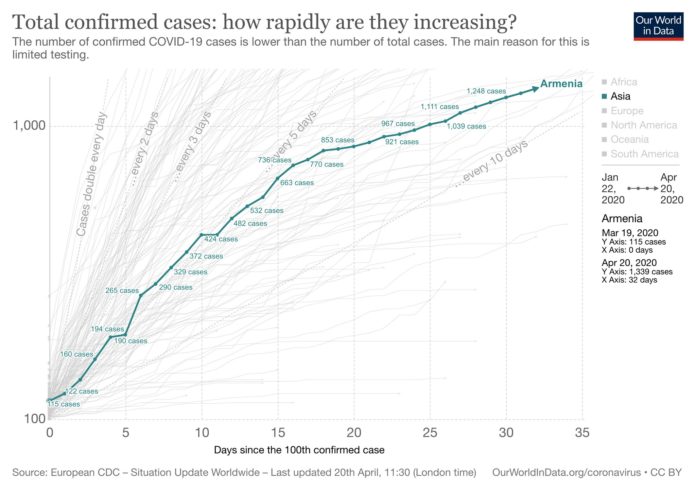YEREVAN (Combined Sources) — On April 16, a large amount of medical supplies necessary for protecting front-line health care workers fighting the global COVID-19 pandemic arrived in Armenia on a charter flight from China.
Thanks to a $100,000 donation from the Izmirlian Foundation (as well as donations from other charitable organizations) and as facilitated by the United Nations World Food Program in Armenia (UNWFP) with the support of the Office of the High Commissioner for Diaspora Affairs, more than 150,000 personal protective equipment (PPE) items, including medical suits, masks, gowns, safety goggles, gloves etc. were delivered to the Ministry of Health of the Republic of Armenia.
In addition, the United States will provide additional $600,000 to Armenia for fighting the novel coronavirus (COVID-19) pandemic, Armenian deputy foreign minister Avet Adonts said at a press conference this week.
On March 28 the US State Department announced that together with the USAID it would provide $1.1 million to Armenia aimed at improving the healthcare field, in particular developing the laboratory systems, increasing the capacities for diagnosing coronavirus, assisting the expert circles, etc.
Health Minister Arsen Torosyan called for “additional efforts” to slow the spread of coronavirus in Armenia on April 21 after authorities reported the highest daily increase in infections in more than two weeks.
The Armenian Ministry of Health said in the morning of April 21 that the number of coronavirus cases rose by 62, to 1,401, while 29 other persons recovered from COVID-19 in the past day. It also reported two more fatalities which raised the country’s death toll from the virus to 24.










